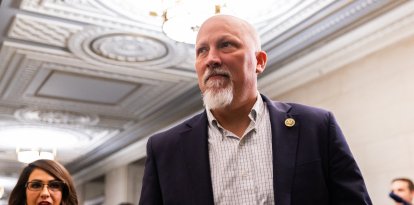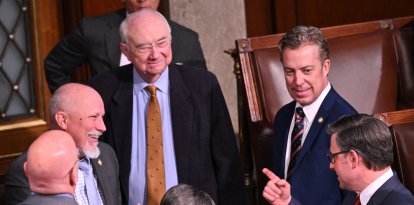Trump and Melania sign Take It Down Act against deepfakes and digital abuse
During the signing ceremony, Trump praised the "level of bipartisanship" that enabled its passage, noting Melania Trump's role as a catalyst.

Melania and Donald Trump at the White House (File).
On Monday, President Donald Trump signed the Take It Down Act into law at an outdoor ceremony in the White House Rose Garden, accompanied by first lady Melania Trump.
BREAKING: President Donald J. Trump has officially signed the Take It Down Act into law, an historic win in the fight to protect victims of revenge porn. pic.twitter.com/5JRO2stU2c
— Rapid Response 47 (@RapidResponse47) May 19, 2025
The legislation, which punishes online abuse of non-consensual intimate images, including those generated by Artificial Intelligence (AI), was described by Trump as an unprecedented milestone of bipartisanship.
The law, driven by the work of the first lady and the joint effort of lawmakers from both parties, seeks to protect victims, especially young people, from digital exploitation.
An outstanding bipartisan effort
The Take It Down Act, introduced in the Senate by Republican Ted Cruz (Texas) and Democrat Amy Klobuchar (Minnesota), passed unanimously in the Senate in February and with 409 votes in favor and 2 against in the House of Representatives in April.
During the signing ceremony, Trump praised the "level of bipartisanship" that enabled its passage, highlighting Melania Trump's role as a catalyst. "We've shown that bipartisanship is possible," the president said "it's the first time I've seen such a level of bipartisanship, but it's a beautiful thing to do".
For her part, Melania Trump, who has championed online safety since her husband's first inauguration, underscored the importance of the legislation to protect young people.
The Take It Down Act is a crucial step in protecting our children from predatory behavior online. I was proud to support this important legislation! https://t.co/yD2hsLtoCH
— Rep. Diana Harshbarger (@RepHarshbarger) May 19, 2025
"This legislation is a powerful step forward in our efforts to ensure that every American, especially young people, can feel better protected from their image or identity being abused through non-consensual, or intimate imagery of NCII," she said.
In addition, she warned about the dangers of social media and AI, describing it as "digital candy" that can be "addictive" and "be weaponized to shape beliefs" to emotionally harm or even prove deadly.
Take It Down Act Details
The new law makes it a federal crime to publish or threaten to publish non-consensual intimate images, including “digital forgeries" or deepfakes created by AI. Penalties include up to three years in prison for sharing images of minors, two years for images of adults, two and a half years for threats against minors, and one and a half years for threats against adults.
It also obliges social media platforms such as Snapchat, TikTok and Instagram to establish procedures to remove such content within 48 hours of notification from the victim.
The rise of deepfakes, which emerged in 2017 following the publication of fake content on Reddit, has amplified the need for this legislation. Although nearly all U.S. states have laws against the distribution of non-consensual intimate images, they vary in scope and severity, which made a unified federal regulation necessary.
Voices of victims
In March, Melania Trump hosted a roundtable discussion on Capitol Hill with lawmakers and victims about revenge porn and deepfakes, marking her first appearance there since Trump's return to the White House.
Among the guests was Elliston Berry, a 15-year-old Texas teenager, who recounted how, at age 14, her peers used AI to create and share explicit fake images of her. "Fear, shock and disgust were just some of the many emotions I felt," said Berry, who advocated holding tech companies accountable.
Francesca Mani, from New Jersey, also shared her experience as a victim of deepfakes at age 14, urging schools to take action against bullying and digital exploitation.
Breeze Liu, 24, recounted her struggle to remove fake images of herself from a porn site in 2020.
Meanwhile, state representative Brandon Guffey from South Carolina talked about his 17-year-old son Gavin's tragic suicide in 2022 after falling victim to an online sextortion scam.
The legacy of "Be Best"
"In an era where digital interactions are integral to daily life, it is imperative that we safeguard children from mean-spirited and hurtful online behavior," the first lady said in March, calling the law "a powerful step toward justice, healing and unity."
A message of hope
The signing ceremony marked not only a legislative breakthrough, but also a moment of unity in a polarized political landscape. With the Take It Down Act, the United States takes a firm step toward a safer online environment where victims have a voice and platforms face clear accountability.


























